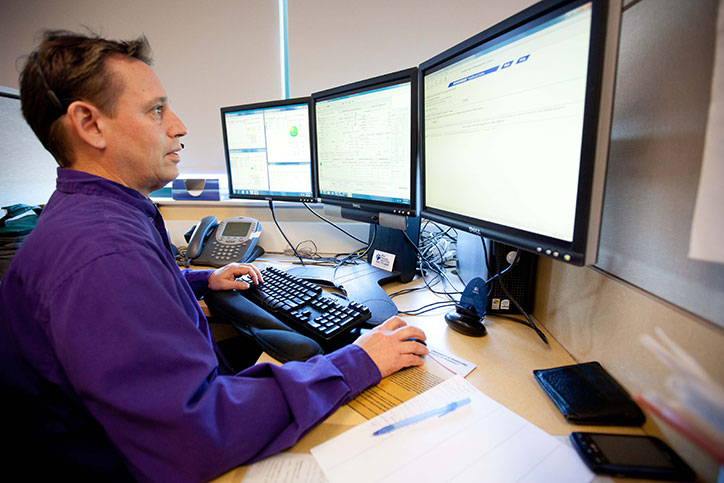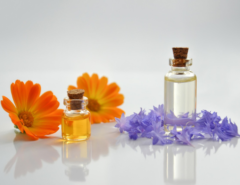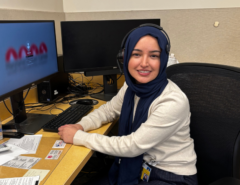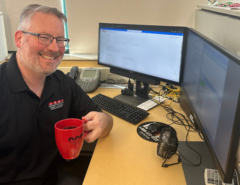“Hello, poison center? I gave my child a dose of allergy medicine. My husband didn’t know, and he gave a dose 10 minutes later. Is this okay?”
“Hello, poison center? I am 70 years old and I may have had some hair gel on my hands when I rubbed my eyes. What should I do? I may have rubbed my dog’s eyes also.”
Most people do not think about the poison center until they need its services. Much like 911, the poison center is a resource that is there when you need it. As we head into March and Poison Prevention Week, let’s take a minute to look closer at what a typical day is like at the Maryland Poison Center.
The Types of Calls that We Receive
Taking a snapshot of a single day in February, our poison specialists received 124 calls. They also made 81 follow-up calls. On this day, there were 1 to 4 pharmacists and/or nurses on duty at any given time.
Incoming calls came from the public, doctors, nurses, paramedics, and police officers. Many of these calls were about medicine. Other calls were about:
- Cleaners: dishwasher detergent, all purpose cleaner, and bleach
- Personal care products: shower gel, hand sanitizer, diaper rash ointment, deodorant, and astringent
- Foreign objects: pen ink and cigarettes
- Household products: ice melt, fragrance oil, pesticide, and paint remover
- Miscellaneous: fire extinguisher, spoiled food, and plants
The ages of the patients ranged from 10 months to 75 years. There were even four calls about pets.
What to Expect When the Phone Rings
For each call that comes in, our poison specialists take a full history first. They ask many questions to help them get a clear picture of what has happened and how the patient is doing. Next, the specialist assesses the information and tells the caller what treatment is needed and whether it can be managed where they are or if they must go to the hospital. Finally, the specialist informs the caller of the effects that can be expected in that situation.
Making Sure Patients Get the Care They Need
The specialist’s work does not end with incoming calls. On this day, they also made 81 follow-up calls to check on patients in hospitals or at home who may have been having symptoms. During a follow-up call, the specialist learns how the patient is doing and what treatment they have received. They also make additional recommendations, if needed, to make sure the patient is getting the best possible care.
Professionals Prepared to Tackle Any Poison Problem
The work of a poison specialist is challenging. They could be helping a mom with a child who ate diaper rash ointment one moment. The next moment, they are called by a doctor who is treating a patient with a multiple drug overdose. Doctors consult poison specialists for overdoses much like they would a neurologist for a patient who has had a stroke. There could be multiple calls coming in at one time or there could be a period of time when no calls come in. Most calls are about a poisoning or overdose, but some calls are for drug identification, drug information, and poison information.
If you have a question about a poisoning or overdose, know that our poison experts are a phone call away. Just dial 1-800-222-1222.





Leave a Reply